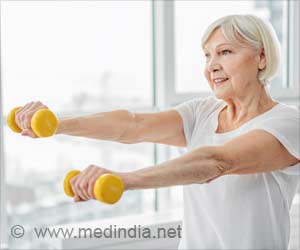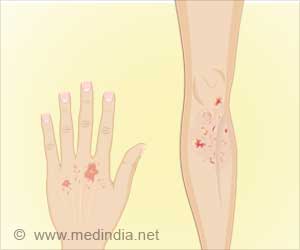46 male participants took part in the study. They were divided into three groups: young sedentary (15), elderly lifelong exercise (16), and elderly sedentary (15).
They performed a heavy resistance exercise, sitting in a mechanical chair performing a knee extension movement to evaluate muscle function.
The amount of force produced was measured. Blood samples were taken, and muscle biopsies were analyzed from both legs. The researchers found elderly lifelong exercisers outperformed both the elderly and young sedentary adults.
Lead author, Casper Soendenbroe, University of Copenhagen, Denmark said: “This is the first study in humans to find that lifelong exercise at a recreational level could delay some detrimental effects of aging. Using muscle tissue biopsies, we’ve found positive effects of exercise on the general aging population. This has been missing from the literature as previous studies have mostly focused on master athletes, which is a minority group“.
This new study is more representative of the general population aged 60 and above, as the average person is more likely to take part in a mixture of activities at a moderate level. This can be used as a biomarker to further investigate the link between exercise, aging, and muscle health.
The single most important message from this study is that even a little exercise seems to go a long way, when it comes to protecting against the age-related decline in muscle function.
This is an encouraging finding which can hopefully spur more people to engage in an activity that they enjoy. There is still more to learn about the mechanisms and interactions between nerves and muscles and how these change as we age.
Follow-up studies are needed to see if the benefits of lifelong exercise are maintained later in life. Further, investigation on recreational activity and muscle health needs to be carried out in females.
Source: Medindia



